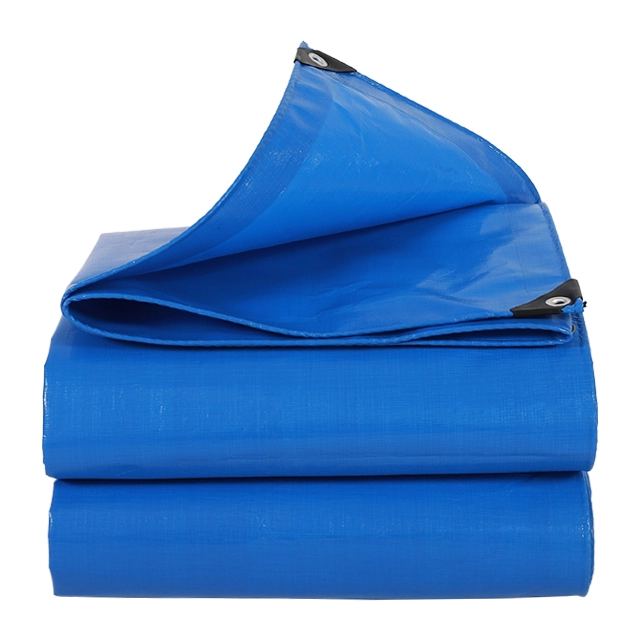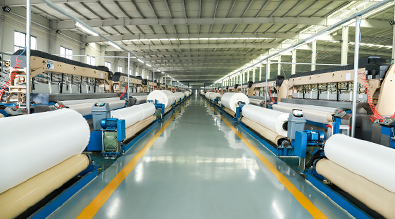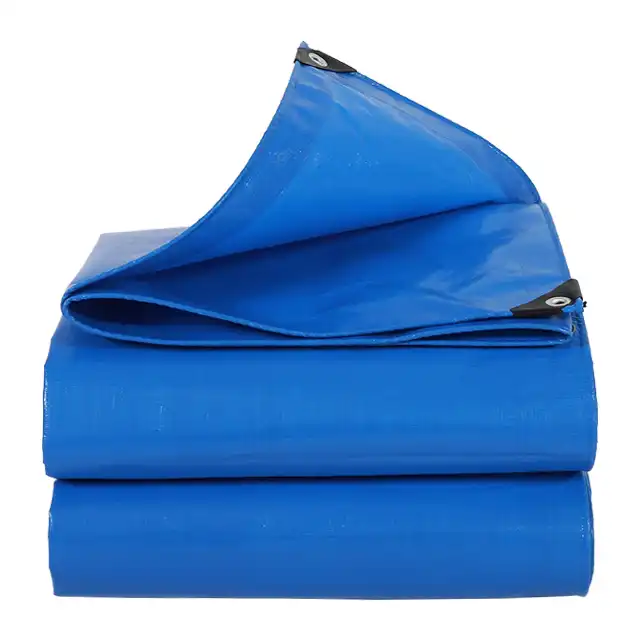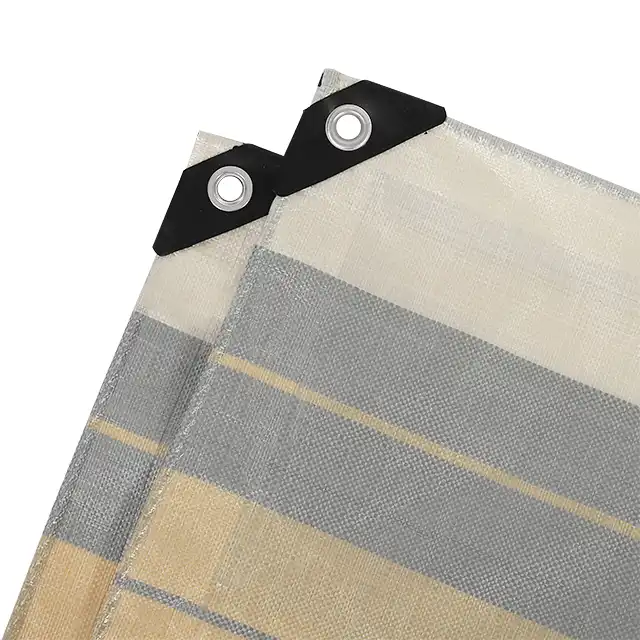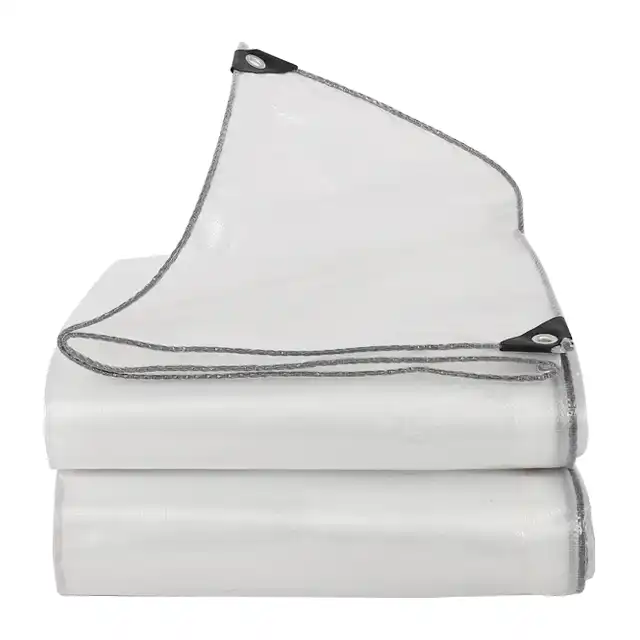Choosing Tarps from Manufacturers with Eco Certifications
In today's environmentally conscious marketplace, selecting tarps from manufacturers with eco certifications has become increasingly crucial for businesses and individuals alike. Environmental responsibility is no longer just a trend but a necessity that drives purchasing decisions across industries. When choosing tarps for industrial, agricultural, or commercial applications, buyers must consider not only the product's durability and functionality but also its environmental impact throughout its lifecycle. Eco-certified manufacturers demonstrate their commitment to sustainable practices through rigorous quality control, responsible material sourcing, and adherence to international environmental standards. This approach ensures that tarps meet both performance requirements and environmental obligations, providing customers with reliable protection solutions that align with their sustainability goals.
Understanding Environmental Standards in Tarp Manufacturing

The foundation of eco-certified tarp manufacturing lies in comprehensive environmental management systems that govern every aspect of production. Modern tarp manufacturers implement ISO 14001 environmental management standards alongside traditional quality certifications like ISO 9001:2015, creating a dual framework that addresses both product excellence and environmental responsibility. These standards require manufacturers to establish systematic approaches to environmental protection, including waste reduction, energy efficiency, and resource conservation throughout the production process. Manufacturing facilities that produce eco-certified tarps typically employ advanced production technologies that minimize environmental impact while maintaining superior product quality. For instance, state-of-the-art yarn extruding systems utilize high-efficiency machinery that reduces energy consumption per unit of production. These systems can process materials ranging from 400D to 2500D thickness while maintaining consistent quality standards. The integration of automated water-jet looms, particularly those capable of producing ultra-wide widths up to 5 meters, reduces material waste by eliminating the need for seaming in large-format applications. The coating process in eco-certified facilities represents another critical area where environmental considerations merge with product performance. Advanced fabric coating machines equipped with precise temperature and application controls ensure optimal material usage while minimizing volatile organic compound emissions. Professional technicians monitor these systems continuously, adjusting parameters to maintain both product quality and environmental compliance. This attention to detail results in tarps that deliver exceptional waterproofing, UV resistance, and durability while meeting stringent environmental standards.
Sustainable Material Selection and Production Processes
The selection of raw materials forms the cornerstone of sustainable tarp manufacturing, influencing both product performance and environmental impact. High-quality polyethylene (PE) used in eco-certified tarps undergoes rigorous screening to ensure it meets both performance and environmental criteria. Manufacturers committed to sustainability often prioritize materials that can be recycled or have lower environmental impact during production and disposal phases. Production processes in eco-certified facilities incorporate advanced technologies that optimize resource utilization while maintaining product integrity. Wire drawing lines equipped with energy-efficient motors and precision controls produce consistent yarn quality while minimizing energy consumption. These systems can operate at various specifications, creating meshes ranging from 6x6 to 16x16 configurations and supporting denier ranges from 600D to 1800D, accommodating diverse application requirements without compromising environmental standards. The fabric weaving process represents a significant advancement in sustainable manufacturing practices. Modern facilities employ hundreds of Korea-imported automatic water-jet looms that operate with remarkable efficiency, producing fabric widths from 1.5 meters to 5 meters without joints. This capability eliminates material waste associated with seaming and reduces the overall environmental footprint of large-scale tarp production. The seamless construction also enhances product performance, providing superior strength and weatherproofing characteristics essential for demanding applications. Surface treatment processes in eco-certified manufacturing facilities utilize LDPE lamination techniques that provide exceptional durability while maintaining environmental compliance. These treatments ensure that tarps achieve critical performance characteristics including 100% waterproofing, tear resistance, and UV protection. The lamination process is carefully controlled to minimize waste generation and ensure consistent product quality across varying GSM specifications, typically ranging from 75 to 400 GSM depending on application requirements.
Quality Assurance and Certification Standards
Quality assurance in eco-certified tarp manufacturing extends far beyond traditional product testing to encompass comprehensive environmental monitoring and compliance verification. Advanced quality testing equipment ensures that every batch of tarps meets stringent performance standards while adhering to environmental protocols. This dual-focus approach requires sophisticated monitoring systems that track both product characteristics and environmental impact indicators throughout the production cycle. The certification process for eco-compliant tarps involves rigorous third-party testing and verification procedures. Independent testing laboratories evaluate products across multiple parameters including tensile strength, waterproofing effectiveness, UV resistance, and environmental impact assessments. These comprehensive evaluations ensure that tarps not only meet immediate performance requirements but also demonstrate long-term durability and environmental responsibility. Products achieving excellent results in these tests provide customers with confidence in both product performance and environmental compliance. Continuous monitoring systems implemented in certified facilities track every aspect of the production process, from raw material intake through final product packaging. These systems enable real-time adjustments to maintain optimal performance while ensuring environmental standards are consistently met. The comprehensive quality monitoring approach covers all production stages including yarn extrusion, fabric weaving, coating application, and finished product processing, ensuring that environmental considerations are integrated throughout the manufacturing cycle. Manufacturing facilities maintaining eco certifications typically employ over 600 skilled workers trained in both quality control and environmental management practices. This workforce expertise ensures that production processes consistently meet both performance and environmental standards. The combination of advanced equipment, systematic monitoring, and skilled personnel creates a manufacturing environment capable of producing high-quality tarps while maintaining strict environmental compliance standards.
Applications and Performance Benefits of Eco-Certified Tarps
Eco-certified tarps demonstrate exceptional versatility across numerous applications while maintaining superior environmental credentials. These tarps excel in truck canopy applications, providing reliable protection for cargo during transportation while meeting environmental standards required by logistics companies committed to sustainability. The enhanced durability of eco-certified tarps ensures extended service life, reducing replacement frequency and overall environmental impact associated with product lifecycle management. Agricultural applications benefit significantly from eco-certified tarp solutions, particularly in greenhouse construction and crop protection systems. These tarps provide essential environmental control while supporting sustainable agricultural practices. The UV treatment applied to eco-certified tarps ensures long-term performance under intense sunlight exposure, maintaining structural integrity and optical properties essential for agricultural productivity. Additionally, the waterproofing characteristics prevent contamination while supporting efficient water management practices crucial for sustainable farming operations. Industrial applications including cargo storage, port operations, and mineral processing facilities require tarps that deliver reliable performance under extreme conditions while meeting environmental compliance requirements. Eco-certified tarps provide exceptional tear resistance and anti-corrosion properties essential for protecting valuable materials and equipment. The arctic flexibility characteristics ensure reliable performance across temperature extremes, while shrink-proof construction maintains dimensional stability under varying environmental conditions. Construction site applications demand tarps that provide effective enclosure and building insulation while supporting green building initiatives. Eco-certified tarps contribute to LEED certification requirements and other green building standards by demonstrating environmental responsibility throughout the construction process. The easy handling characteristics and highly durable construction reduce labor costs while ensuring reliable protection for materials and work areas.
Conclusion
Selecting tarps from manufacturers with eco certifications represents a strategic decision that balances performance requirements with environmental responsibility. The comprehensive approach to sustainable manufacturing ensures that products meet demanding application requirements while supporting broader environmental goals. Quality management systems, advanced production technologies, and rigorous certification processes combine to deliver tarps that exceed traditional performance standards while maintaining strict environmental compliance.
As a leading China tarps factory, Linyi Shengde Plastic Co., Ltd. exemplifies the integration of environmental responsibility with manufacturing excellence. Our position as a premier China tarps supplier stems from over two decades of commitment to quality and sustainability. As your trusted China tarps manufacturer, we offer comprehensive product customization capabilities backed by advanced R&D facilities and ISO certifications. Whether you're seeking China tarps wholesale solutions or specific tarps for sale, our extensive product range addresses diverse application requirements. Our competitive tarps price structure reflects our commitment to providing exceptional value while maintaining the highest standards of quality and environmental responsibility. For detailed information about our eco-certified tarp solutions, contact us at info@shengdetarp.com to discuss your specific requirements and discover how our products can support your sustainability objectives.
References
1. Johnson, M.K., "Environmental Certification Standards in Industrial Textile Manufacturing," Journal of Sustainable Manufacturing, 2023.
2. Rodriguez, A.L., "Polyethylene Tarpaulin Production: Balancing Performance and Environmental Impact," Materials Science and Environmental Engineering, 2024.
3. Chen, W.H., "Quality Management Systems in Eco-Certified Manufacturing Facilities," International Quality Assurance Review, 2023.
4. Thompson, R.J., "Sustainable Material Selection in Heavy-Duty Textile Applications," Environmental Manufacturing Quarterly, 2024.
